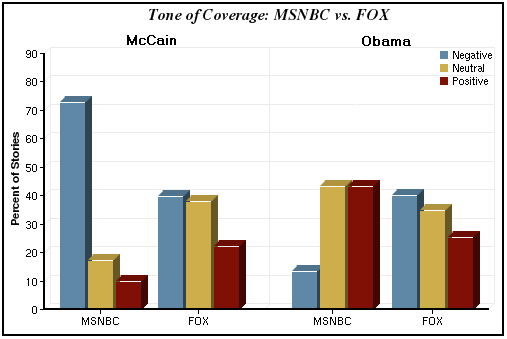I went for a walk. The other night was one of those nights where all you wanna do is getting lost amid a big and hectic crowd, mirroring yourself through the world surrounding you. In other words, I decided to wander around Manhattan, after a long day of work. Do you know any better city in the world to feel serenely anonymous, while enjoying watching people?!
Walking from Columbus Circle to Lincoln Center, I was watching all the cute couples dressed up for some nice Jazz- the guy feeling nervous, walking all uptight in his suite, but proud for taking his lady out to such an elegant place and the girl, content, but detached, with that snobby expression on her face, of whom doesn’t really want to reveal what a novelty that is and instead shows almost indifferent distance from the height of her hot, but damn uncomfortable heels.
Dark night or Swing Vote? After Barnes and Nobles I bumped into a movie theater. The choice almost seemed hard. Then, I opted for Swing vote. I figured it’d be funny to spend 2 hours seeing what you always learn at school “Every vote counts”, especially, if the election ends tight and a single 40 years old single dad from New Mexico is the only “just laid off” citizen in charge of deciding who ‘s going to be the next president of the United States. What’s so funny about it? He doesn’t give an ass rack about politics, nor about the civic duty ” because no matter who wins, I won’t still have the money to pay for health insurance if you get sick”, drinks like there’s no tomorrow and he’s ignorant and as narrow minded worse than any characterization of Homer Simpson meets the family guy! Oh and on top of that, what would be so funny if it wasn’t for the fact that that’s what actually happens in real life, is that the two presidential candidates adhere their campaign on him, changing and flip-flop their agenda according to the latest polls-in the movie his interviews on where he stands on singular issues- Does it sound familiar? I guess reality beats immagination 1-0.
Overall, the movie is entertaining. Nevertheless, technically, once you figure the pattern they’re on, it becomes too predictable and you can tell that at some point the writers got lost, not knowing exactly what to do and where to go with that. Characters depiction is to Manichean: good ones are plain good and the bad ones plain bad, in other words, a typical personality’s definition of Walt Disney movies, where characters are flat and there’s no real in depth and complex analysis: there’s enough drama to engage you, but never too much to the point to traumatize you and when that is about to happen, a joke immediately relieves the pressure, with a shot of pure lightness and irony. After all, it’s PG 13 on purpose, so that more people can go watch it. In Hollywood, marketing first, art later….ars gratia artis I guess.
The movie is averagely funny. The idea that makes it funny disturbs me. Ignorance disturbs me.
It limits and narrows down your awareness about your real options in life, your rights, your opportunities to be a good person, a good father, as it is in the movie, or a good citizen and become a better one. What’s worse? Politicians in real life speculate and leverage such status of ignorance and poverty with every instrument they have to gain votes and maintain the status quo. Since Roman Empire’s “religio instrumentum regni”, politics has used religion, for instance, as an instrument to gain power out of fear and control over poor and ignorant people. In the current western civilization, the US politics election always hinge upon workers class: whoever is able to get those votes and the so called bible belt’s votes usually wins. That’s how Bush won his second mandate. In the middle East, terrorism is often used an instrument to leverage poor people and speculate on them to turn them against the big western enemy: the equation? The more these poor people are kept in poverty and ignorance and the more these countries can blame and speculate over the evil United States and their allies! Obviously, I can’t say that western politicians, unlike most middle east and third world countries politicians, aspire to maintain a state of ignorance. Nevertheless, while attempting to change that through different political platforms, they most certainly go after what these classes want and need to hear, adapting and shaping their political agenda on the latest polls, more than on what they really stand. Unfortunately, in the long term, that causes, in my opinion, an overall impoverishment of the political and moral standards of the nations.
Ignorance keeps you objectively in stall, still, entrapped in a limited world, paradoxically confined within a state of apparent peace with the world, because the worse part is that you’re not even aware of such limiting status. You think life is fine just like that; to break the “veil of Maya”, having the epiphany about what the real life is, about what the German philosopher Kant would call “noumeno” (even though for him it’s impossible to actually ever know that) is the real challenge in life. That is the real challenge for politicians: to drag those people out of their cultural, educational and political ignorance. Not to mention, on a more intimate sphere, to be able to fight sentimental and emotional ignorance, giving oneself a “sentimental education”, as the french writer Flaubert would call it, an emotional education, in order to actually learn how to manage and express in a healthy manner one’s own sentiments, feelings and emotions and consequently, be able to consider, comprehend and respect someone else’s feelings and emotions, like your love ones’.
This is the one of the hardest challenges for human being, to be able to find the right equilibrium in that moral and psychological tension between feeling unique and confident about oneself on one hand, while feeling part of something bigger like your family, your community, your work on the other and be able to respect both: Aristotle defined us as “zoon polikon”, a “political animal”, in the sense of social animal, in need of relating with others. But in the age of communication, the paradox is that it’s harder to know how to really communicate with ourselves, be really in touch with ourselves and be able to express our real emotions to the others. As Marshall Macluhan, the renowned mass media author, once wrote ” In the age of communication, information is the first merchandise”. But are we really capable to communicate, inform and find the right instruments to be informed in a state of limiting ignorance?
The other day, as I was walking on the streets of Harlem, I thought I was in some kind of “Finding Forrester” movie where it is such a cliche to hear a black guy saying to an older, typically wiser “Fuck college, I need to get a job now man!”. Well, it ain’t no movie and that I heard it for real, just a step away from my conception of the world, while holding in my hand a copy of The New Yorker. Isn’it ironic? In one step, two complete different approaches to the world. That’s what I hate. That’s what disturbs me. A narrow mind that is convinced, just because he/she doesn’t know any better, that a job now useful to pay the bills and utilities is not even better than a career in a few years, but is actually the only available and realistic option. If it’s true that “everyone takes the limits of their own vision as the limits of the world”, as the German philosopher Schopenauer said, then, ignorance definitely constitutes the fence and the guardian of those limits of your own vision.
In these situations, ignorance rarely stays confined within humbleness to often grow, instead, into a Manichean and simplistic arrogance: life is complicated, yes, but not complex. “Let me tell you how life works. If you have money, you’re somebody. If you don’t, you’re nobody. It’s either black, or white. No grey zone”. It’s what I’m guessing that guy would have told me if I had started talking to him. Because of ignorance, money is the closest element resembling a value, inevitably acquiring such a status. It becomes a moral value to act upon and accordingly, as well as a parameter to judge people and society. After all, even Thomas Jefferson’s pursuit of happiness apparently is approached neither as an existential matter, nor as philosophical or a psychoanalytical one, but rather, as he himself wrote in his own words “[It is a] great truth that industry, commerce and security are the surest roads to the happiness and prosperity of [a] people.” –Thomas Jefferson to Francisco Chiappe, 1789. Papers 15:405. So, unfortunately, happiness is equal to wealthiness. Money is equal to a value worth it to pursue, thanks to a state of ignorance that doesn’t make you know any better, nor more aspiring to higher values, hopes and goals.
“Where do you hear this non sense? Stop listening to that lady. Stay away from her!”. “That lady” is the teacher of the movie protagonist’s young daughter trying to teach her some civic duty and right. Imagine a dialogue between Maggie Simpson and Homer Simpson about the importance of education and civil rights. Funny, but sad. And again, reality beats imagination 2-0 again. I know fathers punishing their kids by making them read. Of course, reading is not a right, neither an opportunity of intellectual growth, nor a simple pleasure. No, it’s a punishment! Hello Homer Simpson! That’s a heck of way to educate your children and feed them with the right values in life! Oh, but it gets better. I’ve known struggling single mothers telling her children not to go college. Of course, college it’s a waste of time! Make some money, be practical and contribute with the bills payments…for real?
The truth is your personality is what affects your choices in life. Your incomes simply affect the degree of that choice. The goals, your values, your ambitions and principles, those come from the person you are, from the education you had, your emotional one, your sentimental, if you have been loved and therefore have learned in turn how to love back and respect. The adult that you become in life stems from the degree of exposure you had to cultural and social open mindedness. All the experience that you have read in literature, studied in history, read in anthropology, or science, gave you the mind frame, the “forma mentis” to realize that, regardless of whether you like them or agree with them, there are so many more lifestyles than the one surrounding you and that gives you the opportunity to aspire to create your own life.
Just like when you walk into Whole Food and realize that at the salad bar there’s so much more food that you can have for lunch that you could ever imagine. But, if you don’t have access to Whole Food, you will never know about all that available selection. What does it give you access to that? Money? No. That comes afterward. The primary reason of access is the right dietary education to know that you need to feed your body in a healthy way, just like your mind. Education and information gives you access to life. Those are your primary raison d’etre of your choices in life. The valuable currency to have success in life. Not money. A better education and information gives you access to knowledge, to the possibility to discover more options than the ones you’re surrounded by and therefore to enlighten your creativity and enhance your skills to build and create exactly what you want. You go to Whole Food once you have learned what’s good for your body, not after you have won the lottery. Look at rappers, they continue to do the same things they used to when they poor, but to a higher degree. Their houses are packed with gold and diamonds but that doesn’t give them style, nor class!. With more money and no education you might be able to have a McDonald inside your house, but not Whole Food.
Marketing, as the “for-profit science” analyzing sociological, cognitive and psychological pattern behaviours knows that very well. In the current, complex and diversified mass market, demographics, like income, gender, age, counts much less in determining a marketing campaign. What matters is often time your behaviour. What you feel, what you like to do and think. That’s what companies crave to know about you. And your behaviour, your choices comes from your personality. In fact, no matter whether you’re poor or rich, if you’re ignorant and not educated, you might even be able to gentrify your social status, but not your own mind frame.That, unfortunately, will stay the same: narrow minded and ignorant, just like your choices in life.
At the end of the movie, Kevin Costner eventually comes to terms with himself and decides to do so with the others, apologizing in front of the whole world because ashamed for being a bad man, a bad father and a bad citizen. I guess, you can have a wonderful daughter cover up for you all the time, like in the movies, or hide your ignorance in a million dollar house, like often times happens in life, but evenutally the odor of your real nature will arise, transpiring in your gestures, in your conversations and in your choices in life, just like in Renaissance, when perfumes were used by royalty and nobility to mask body odors resulting from the sanitary practices of the day…but sooner or later, the real odor would always prevail over the fake scent of perfume.
The end


